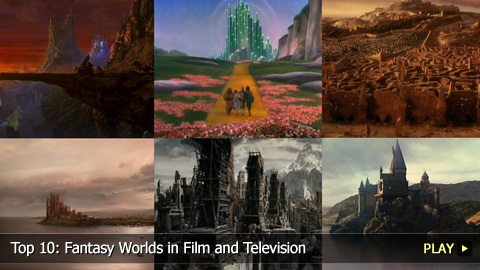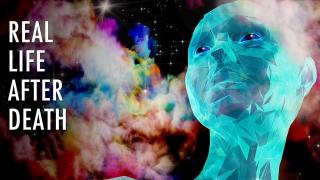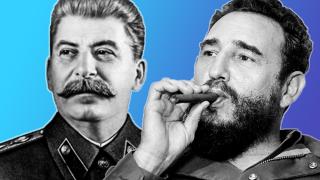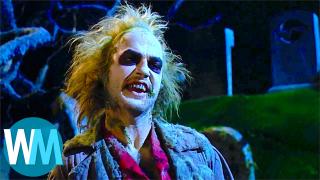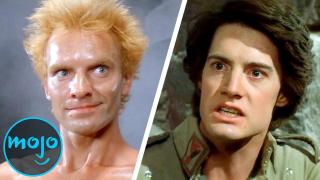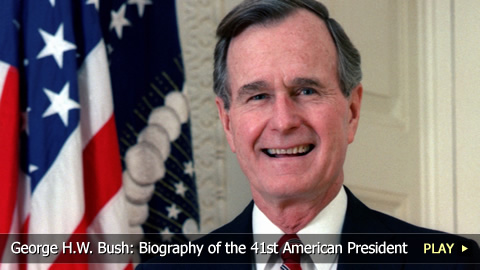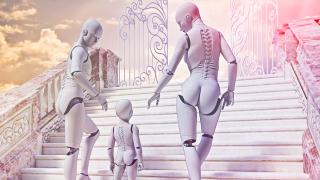Ronald Reagan: Life and Death of a President
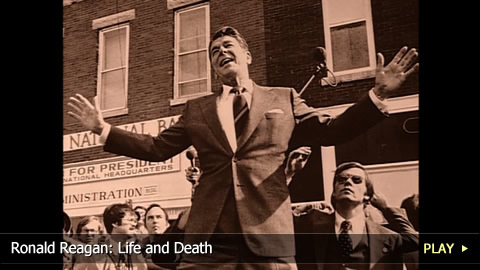
Film and Television Career
Top 10 Fantasy Worlds in Film and Television
During his career, he worked extensively within the Screen Actors Guild, and eventually moved to the small screen as the host of the TV show General Electric Theater. Reagan married twice during this period: his first wife was actress Jane Wyman whom he wed in 1940. After their divorce, Reagan married Nancy Davis on March 4th, 1952 and she remained his wife until his death.
Early Political Career
Top 10 Times Celebs Celebrated Too Early at Award Shows
Reagan’s political career started to take shape in the early 1950s. Though he began as a Democrat, he later joined the Republican Party. His political fundamentals were clear: lower taxes, smaller government and a stronger military.
Governor of California
By 1966, his charm and opinions had encouraged Californians to elect him as Governor, and he kept the job for two terms. He promptly attempted to secure a spot as the Republican Party’s Presidential candidate; though his first attempts in 1968 and 1976 were unsuccessful.
Elected to the Presidency
In 1980 he finally won the nomination. Again, he used charisma and sharp policies to win votes and at the age of 69 he was elected the 40th President of the United States.
The Reagan Revolution
Is There Life After Death in the Multiverse? | Unveiled
His presidency between 1981 and 1989 was called the Reagan Revolution because of the great changes that swept the nation. A champion of stimulating the economy through lower taxes, his economic policies were nicknamed Reaganomics. However, these tactics made him less popular with the lower classes as they felt he did not understand their problems. Detractors also point out that, while these policies did revive the economy, they also left his successor with a huge deficit.
Assassination Attempt
Top 10 People Who Survived the Most Assassination Attempts
Only two months after his inauguration, on March 30th, 1981, the President was shot by John Hinckley, Jr. at the Hilton Washington Hotel. Reagan recuperated quickly, and in the wake of this assassination attempt, his approval rating soared to 73 per cent.
The Cold War
Top 10 Thought Provoking Life After Death Movies
Throughout his presidency, Reagan handled conflicts both at home and abroad. For example, he led the country through the Cold War by implementing foreign policies that were criticized by some as too aggressive, but hailed by others.
1984 Los Angeles Olympics
Top 10 Reasons Why Dune 1984 is Hated
Reagan also became the first President to open a U.S.-hosted Olympic Games in the summer of 1984. Shortly after, he was reelected in a landslide victory over former Vice President Walter Mondale, and won the most electoral votes of any president in history.
Second Term
George H.W. Bush: Biography of the 41st American President
His second term also held crucial moments. When the Challenger Space Shuttle disintegrated, killing its seven-person crew in January of 1986, Reagan consoled a grieving nation with a stirring television address. The President and First Lady also intensified the War on Drugs during these years, and began their “Just Say No” campaign.
Controversy and the Iran-Contra Affair
Top 10 Music Videos That Caused Controversy
Though he was nicknamed the “Teflon President,” Reagan and his administration were not immune to controversy. The decade’s biggest U.S. political scandal was revealed in late ’86 in the Iran-Contra affair. It was alleged that the country had financed a Nicaraguan rebel group with funds from secret arms sales to Iran. The United States was eventually found guilty of war crimes against Nicaragua. Though Reagan claimed he was unaware of the plot, his popularity plummeted.
After the White House
White Light of Death? Or Bright Light of Rebirth?
Once he left office in 1989, Reagan led a relatively private life. In 1994 at the age of 83, it was announced that the former president was suffering from Alzheimer’s disease. Ten years later, on June 5th, 2004, Reagan died due to complications from the disease. A state funeral was held, and a national day of mourning was proclaimed by then-President George W. Bush.
Legacy
Top 10 Scariest Kaiju On Monarch Legacy of Monsters
With an endearing sense of humor, influential actions and an ability to charm Republicans and Democrats alike, Reagan renewed the United States’ promise for the future and today is considered one of the best Presidents in history.


 0
0
 0
0
 flagged
flagged

